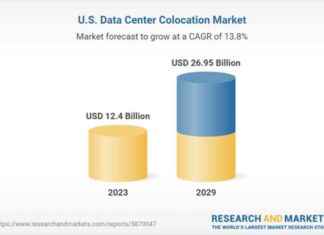The two main candidates unsuccessful in the presidential election in Nigeria both denounced Thursday fraud and the victory of Bola Tinubu, of the ruling party, Atiku Abubakar evoking a “violation of democracy” and Peter Obi a legal action.
Nearly 25 million Nigerians cast their ballots on February 25 in a poll that was generally peaceful, but marred by delays in the counting of votes and major failures in the electronic transfer of results. These incidents have provoked the ire of many voters and the main opposition parties who denounce “massive fraud”.
“The manipulations and fraud that have accompanied this election are unprecedented in the history of our nation,” said Atiku Abubakar, the 76-year-old People’s Democratic Party (PDP) candidate who came second with 29 percent of the vote.
According to him, the results proclaimed by the National Electoral Commission (Inec) were “grossly biased” in favor of Mr. Tinubu, 70, of the Congress of Progressives (APC), who officially won the presidential election with more than 8 .8 million votes, or 36% of the vote.
The official turnout is around 27% – even lower than in the previous election, in 2019 (33%).
“I still do not understand why the electoral arbitrator was in such a hurry to conclude the collection and announcement of the results, given the number of complaints and irregularities” registered, he told the press in Abuja. For him, “it is indeed a violation of democracy”.
Youth favorite Peter Obi, 61, in third place with 25% of the vote, has already announced his intention to go to court to challenge the results.
“I want to go to court. We will explore all legal and peaceful options to get our mandate back. We won the election and we will prove it to Nigerians,” said Obi of the Labor Party (LP).
“This election will go down as one of the most contentious ever in Nigeria,” Obi said. “The Nigerian people … have once again been robbed by our supposed leaders whom they trusted,” he added.
The emergence of this outsider against the two main political parties is a first in the democratic history of Nigeria. This former governor, perceived as honest, had established himself as the candidate for a break with the aging Nigerian elite, reputedly corrupt. And his defeat was experienced as a terrible disappointment for his supporters.
Asked if he intended to do the same, Mr Abubakar, who has unsuccessfully run for the presidency six times, simply replied: “Our lawyers are studying the results of the election, we are awaiting their advice (.. .) and we’ll decide what to do.”
After the proclamation of the results, the candidates have 21 days to challenge the election in court.
Bola Tinubu, the former governor of the economic capital Lagos, will succeed President Muhammadu Buhari, 80, who is due to step down in May with a disastrous record marked by soaring poverty and insecurity.
On Wednesday, he called on his opponents to “team up together”. “We must work in unity” to “put the broken pieces back together”, he insisted.
Nicknamed the “godfather”, the “kingmaker” or even the “boss” for his considerable influence, Mr. Tinubu has been repeatedly accused of corruption during his career, without ever being convicted.
In the past, elections in Nigeria have often been marred by allegations of fraud and violence.
This time, some voters and opposition parties say system failures in uploading results allowed manipulation of ballots and disparities in the results of manual counts at polling stations.
International observers, including those from the European Union, also noted major logistical problems, disenfranchised voters and a lack of transparency.
“The process cannot be considered to have been credible,” a coalition of civil society organizations and observers said on Wednesday.
The outgoing president hailed Mr. Tinubu’s victory: “Elected by the people, he is the best person for this position.” And if Mr. Buhari has recognized “flaws” in the electoral process, according to him they do not affect the “regularity” of the ballot.
For its part, the electoral commission castigated accusations “unfounded and irresponsible” of the opposition.
Nigeria, which has a population of 216 million, is plagued by widespread violence by jihadist, separatist and criminal groups as well as a severe economic crisis.
03/02/2023 21:18:11 – Abuja (AFP) – © 2023 AFP






